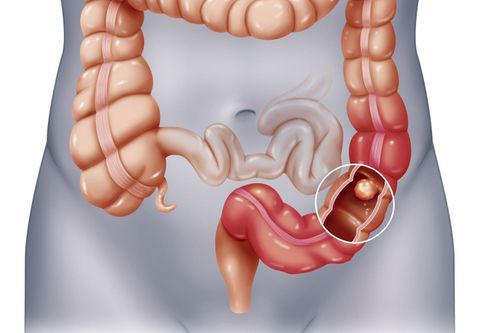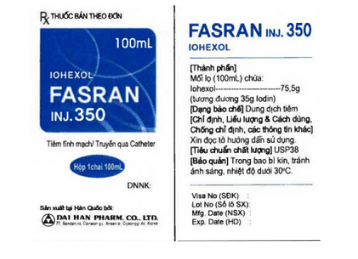This is an automatically translated article.
In the late stages of gynecological cancer and gastrointestinal cancer, malignant bowel obstruction frequently occurs, causing discomfort and inconvenience in the last days of life. 25-40% of malignant bowel obstructions arise from end-stage colon cancer; followed by ovarian cancer in women. Treatment of bowel obstruction in cancer patients is primarily aimed at easing symptoms, not treating the cause.
1. Intestinal obstruction in cancer patients
Intestinal obstruction is the stagnation, obstruction of the contents of the intestinal lumen (small intestine, colon) to some degree, partially or completely. However, there is a more serious case of malignant intestinal obstruction, which is considered a complication of tumors inside or outside the digestive tract, or due to paralysis of the intestines causing poor movement and digestion of food leading to obstruction.
In addition, intestinal obstruction may be associated with more complicating factors, including:
History of abdominal or gynecological surgery; Reduced fluid intake, chronic dehydration; Opioid pain relievers ; Side effects of radiation therapy; Metastasis in the abdomen (bladder, rectum...). Gastrointestinal tract obstruction often occurs in patients with cancers: esophageal cancer, colorectal cancer, stomach cancer, ovarian cancer, pancreatic cancer .... Intestinal obstruction. It can also happen with other types of cancer, although less common.
According to a study by the US National Cancer Institute, the survival rate of patients will be significantly reduced if they are suffering from end-stage colon cancer combined with malignant bowel obstruction. Therefore, the direction of treatment of bowel obstruction in cancer patients is mainly aimed at alleviating symptoms, not treating the root cause.
2. Symptoms of bowel obstruction in cancer patients
The warning symptoms of bowel obstruction in cancer patients can be inadvertently missed due to the duration of treatment or the use of many drugs. The most common symptoms of malignant bowel obstruction include:
Nausea (especially vomiting after eating, after taking drugs); Abdominal cramping, abdominal discomfort; Feeling of fullness after eating; Can't defecate, just sniff. Symptoms of malignant bowel obstruction usually do not resolve on their own, and will instead continue to progress unless palliative measures are taken. Patients should notify their health care team of any known symptoms, including new symptoms or a change in symptoms.
To diagnose whether it is a complication of a tumor, a cancer with a bowel obstruction, the doctor will need to perform a number of imaging tests such as: X-ray of the abdomen, computed tomography (CT) scan results. associated with assessment of cancer progression to confirm the diagnosis.

Buồn nôn là triệu chứng cảnh báo tắc ruột ở bệnh nhân ung thư
3. Treatment orientation and symptom relief
The initial treatment of malignant bowel obstruction is bowel surgery. However, for patients with advanced cancer, the effectiveness of surgery depends on many factors. If the patient wants surgery to remove the obstruction, the doctor will have to consider the prognosis by many factors such as:
Cancer progression and abdominal metastases; The age and health of the patient; The patient's medical condition (eg: diabetes, heart disease...); The ability to recover after a major surgery. In addition to surgery, patients have other treatment options that make them more comfortable and reduce the severity of their symptoms. Examples include endotracheal intubation and the use of a continuous suction device to remove excess stomach acid, helping to reduce nausea and vomiting. Your doctor may also prescribe medication to help relieve pain and upset stomach, and to combat nausea.
The patient can also be given nutrition through intravenous fluids and feeding through a feeding tube. Fluids can also be administered subcutaneously to maintain moisture and provide comfort based on needs and body fluids. Some people with malignant bowel obstruction choose to continue eating according to a certain diet. In general, each method has its own advantages and disadvantages, so choosing which method is the right of the patient, as long as the patient feels comfortable.
Please dial HOTLINE for more information or register for an appointment HERE. Download MyVinmec app to make appointments faster and to manage your bookings easily.













